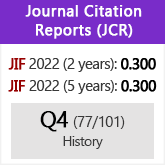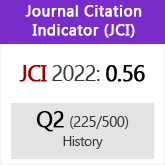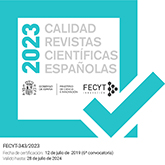O Engenho de açúcar: André João Antonil and the Anatomy of the Seventeenth-Century Brazilian Slave Plantation
DOI:
https://doi.org/10.3989/chdj.2023.017Keywords:
Aristotle, Oikos, Chrematistike, Substantive economy, Patriarchy, Moral economy of master and servant, Redistributive justice, Slave rentAbstract
Jesuit João André Antonil’s Cultura e Opulência do Brasil is perhaps the first comprehensive treatise on slave plantation agriculture in the Americas. However, it is neither a manual nor an economic analysis. Rather, it is a moral and ethical guide for the administration of a sugar mill. This article examines the concepts, categories of thought, structures of meaning, and interpretive strategies through which Antonil comprehends the process of commodity production for the world market on the slave engenho. Antonil’s conceptual horizon was constrained by the Jesuit synthesis of Aristotelean thought and post-Tridentine Christian doctrine and the conception of the Last Judgement as the end of historical time. Consequently, he could not conceptualize the modernity of Atlantic slavery, the world market, and the plantation as a new temporality. Instead, he analyzes the engenho through the Aristotelean concept of oikos or household. The categories of thought and action through which Antonil comprehends the slave plantation and world market reveal the contradictory relation between slave production and the world market in the Iberian Atlantic.
Downloads
References
Alencastro, L. F. de. (2018) The Trade in the Living: The Formation of Brazil in the South Atlantic, Sixteenth to Seventeenth Centuries. Albany: State University of New York Press.
Antonil, A. J. (1968 [1711]) Cultura e Opulência do Brasil por suas Drogas e Minas. Trans. and critical commentary by A. Mansuy. Paris: Institut des Hautes Études de l'Amérique Latine. https://doi.org/10.4000/books.iheal.3914
Aristotle (1955) The Ethics of Aristotle: The Nicomachean Ethics. Trans. by J. A. K. Thomson. Harmondsworth: Penguin Books.
Aristotle (1962) The Politics of Aristotle. Ed. and trans. by E. Barker. Oxford: Oxford University Press.
Benci, J. (1977) Economia Cristã dos Senhores no Governo dos Escravos. São Paulo: Grijalbo.
Blackburn, R. (1997) The Making of New World Slavery: From the Baroque to the Modern, 1492-1800. London: Verso Books.
Boldizzoni, F. (2011) The Poverty of Clio: Resurrecting Economic History. Princeton: Princeton University Press. https://doi.org/10.23943/princeton/9780691144009.001.0001
Bourdieu, P. (1990) The Logic of Practice. Stanford: Stanford Univesity Press. https://doi.org/10.1515/9781503621749
Canabrava, A. P. (1967) "João Antonio Andreoni e Sua Obra." In: A. J. Antonil, Cultura e Opulência do Brasil. São Paulo: Companhia Editora Nacional, pp. 9-112.
Castro, A. B. de (1980a) "A Economia Política, o Capitalismo e a Escravidão," In: J. R. do A. Lapa, ed., Modos de Produção e Realidade Brasileira. Petrópolis: Vozes, pp. 67-107.
Castro, A. B. de (1980b) "Brasil, 1610: mudanças técnicas e conflitos sociais." Pesquisa e Planajamento Econômico, 10 (3), pp. 679-712.
Castro, A. B. de (1984). "As Mãos e Pés do Senhor de Engenho: Dinâmica do Escravismo Colonial." In: P. S. Pinheiro, ed., Trabalho Escravo, Economia e Sociedade. Rio de Janeiro: Paz e Terra, pp. 43-66.
Ferlini, V. L. A. (1988) Terra, Trabalho e Poder. São Paulo: Editora Brasiliense.
Finley, M. I. (1970) "Aristotle and Economic Analysis." Past & Present, 47 (May), pp. 3-25. https://doi.org/10.1093/past/47.1.3
Finley, M. I. (1973) The Ancient Economy. Berkeley: University of California Press.
Franco, M. S. de C. (1976) Homens Livres na Orden Escravocrata. São Paulo: Editora Ática.
Franco, M. S. de C. (1984) "Organização Social do Trabalho no Período Colonial." In: P. S. Pinheiro, ed., Trabalho Escravo, Economia e Sociedade. Rio de Janeiro: Paz e Terra, pp. 145-192.
Furtado, C. (1963) The Economic Growth of Brazil: A Survey from Colonial Times to the Present. Berkeley: University of California Press. https://doi.org/10.1525/9780520338517
Galloway, J. H. (1989) The Sugar Cane Industry: An Historical Geography from its Origins to 1914. Cambridge: Cambridge University Press.
Gama, R. (1983) Engenho e Tecnologia. São Paulo: Livraria Duas Cidades.
Genovese, E. D. (1965) The Political Economy of Slavery: Studies in the Economy and Society of the Slave South. New York: Vintage Books.
Godinho, V. M. (1990) Les Découvertes. XVe-XVIe: Une Révolution des Mentalités. Paris: Éditions Autrement.
Hall, D. (1961) "Incalculability as a Feature of Sugar Production during the Eighteenth Century." Social and Economic Studies, X (3), pp. 305-318.
Koselleck, R. (1990) Le Future Passé: Contribution à la Sémantique des Temps Historiques. Paris: École des Hautes Études en Sciences Sociales.
Löwith, K. (1949). The Meaning of History. Chicago: The University of Chicago Press.
Marquese, R. de B. (1999) Administração e Escravidão: Idéias sobre a Gestão da Agricultura Escravista Brasileira. São Paulo: Editora HUCITEC.
Marquese, R. de B. and Fábio D. J. (2008) "Panis, Disciplina, et Opus Servo: The Jesuit Ideology in Portuguese America and Greco-Roman Ideas of Slavery." In: E. dal Lago, and C. Katsari, eds., Slave Systems: Ancient and Modern. Cambridge: Cambridge University Press, pp. 214-230. https://doi.org/10.1017/CBO9780511482748.008
Marx, K. (1973) Grundrisse: Foundations of the Critique of Political Economy (Rough Draft). London: Penguin Books.
Marx, K. (1976) Capital: A Critique of Political Economy. Harmondsworth: Penguin Books.
Mintz, S. W. (1985) Sweetness and Power: The Place of Sugar in Modern History. New York: Penguin Books.
Moore, J. W. (2000) "Sugar and the Expansion of the Modern World-Economy: Commodity Frontiers, Ecological Transformation, and Industrialization." Review, 23 (3), pp. 409-433.
Polanyi, K. (1957a) "Aristotle Discovers the Economy." In: K. Polanyi, ed., Trade and Market in Early Empires. New York: The Free Press, pp. 64-94.
Polanyi, K. (1957b) "The Economy as Instituted Process." In: K. Polanyi, ed., Trade and Market in Early Empires. New York: The Free Press, pp. 243-270.
Schwartz, S. B. (1985) Sugar Plantations in the Formation of Brazilian Society: Bahia, 1550-1835. Cambridge: Cambridge University Press. https://doi.org/10.1017/CBO9780511665271
Tomich, D. (2017) "Slavery in Capitalism: Toward a Theoretical History of the Second Slavery." In: D. Tomich, ed., Slavery and Historical Capitalism in the Nineteenth Century. Latham, MD: Lexington Books, pp. 37-65.
Tomich, D. (2020) "Capitalism in Slavery, Slavery in Capitalism: Original Accumulation, Slave Rent, and the Formation of the World Market." Comparativ: Zeitschrift für Globalgeschichte und vergleichende Gesellschaftsforschung, 30 (5/6), pp. 522-542.
Tomich, D. (2022) "El padre Antonio Vieira y la escatología de la raza y de la esclavitud en el Atlántico portugués en el siglo XVII." In: C. Naranjo, and M. A. Puig-Samper, eds., Color, raza y racialización en América y el Caribe. Madrid: Los Libros de la Catarata, pp. 13-30
Vainfas, R. (1986) Ideologia e Escravidão: Os Letrados e a Sociedade Escravista no Brasil Colonial. Petropolis: Editorial Vozes.
Warman, A. (2009) Corn & Capitalism: How a Botanical Bastard Grew to Global Dominance. Chapel Hill: University of North Carol
Published
How to Cite
Issue
Section
License
Copyright (c) 2023 Consejo Superior de Investigaciones Científicas (CSIC)

This work is licensed under a Creative Commons Attribution 4.0 International License.
© CSIC. Manuscripts published in both the printed and online versions of this Journal are the property of Consejo Superior de Investigaciones Científicas, and quoting this source is a requirement for any partial or full reproduction.All contents of this electronic edition, except where otherwise noted, are distributed under a “Creative Commons Attribution 4.0 International” (CC BY 4.0) License. You may read here the basic information and the legal text of the license. The indication of the CC BY 4.0 License must be expressly stated in this way when necessary.
Self-archiving in repositories, personal webpages or similar, of any version other than the published by the Editor, is not allowed.

















